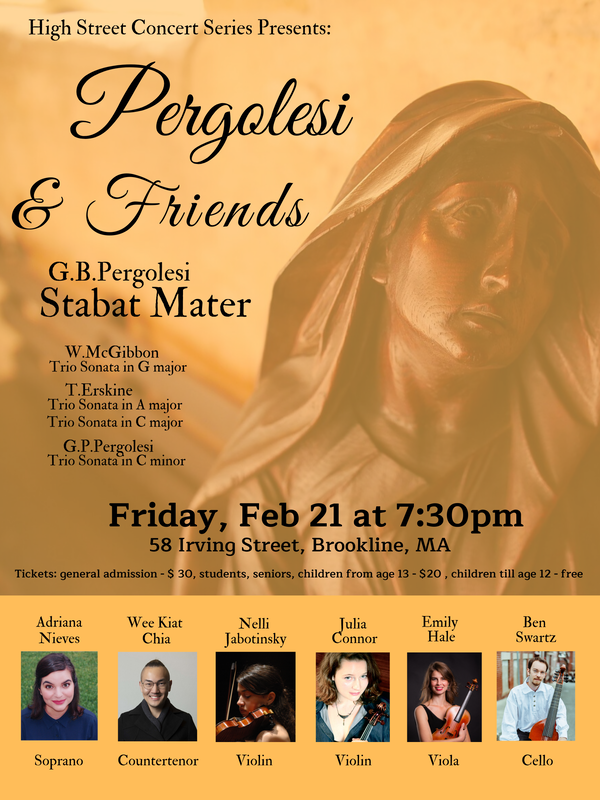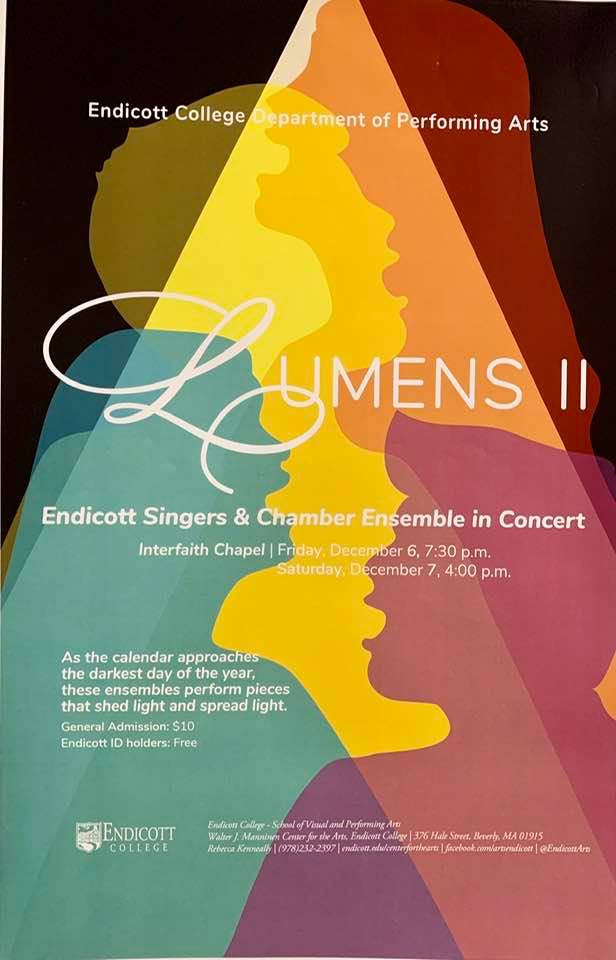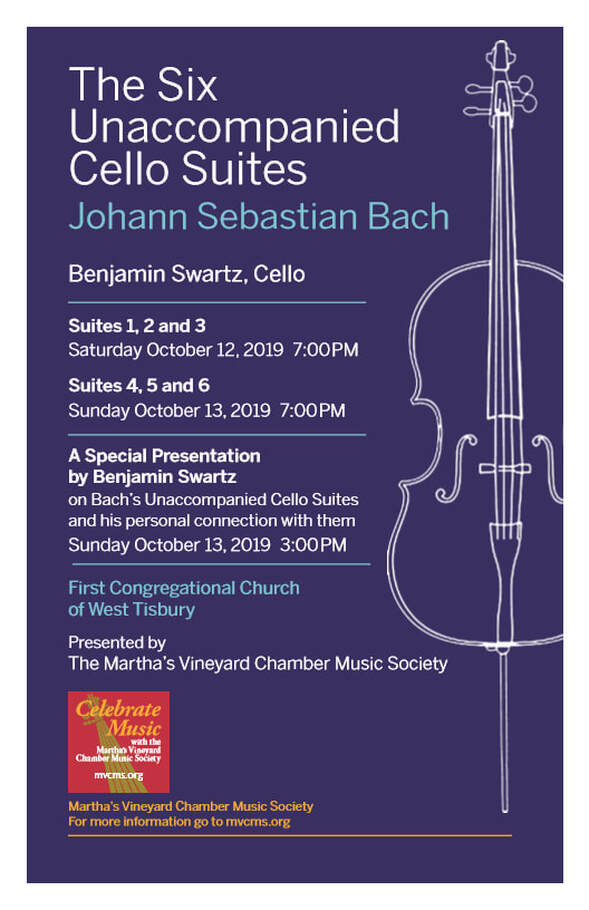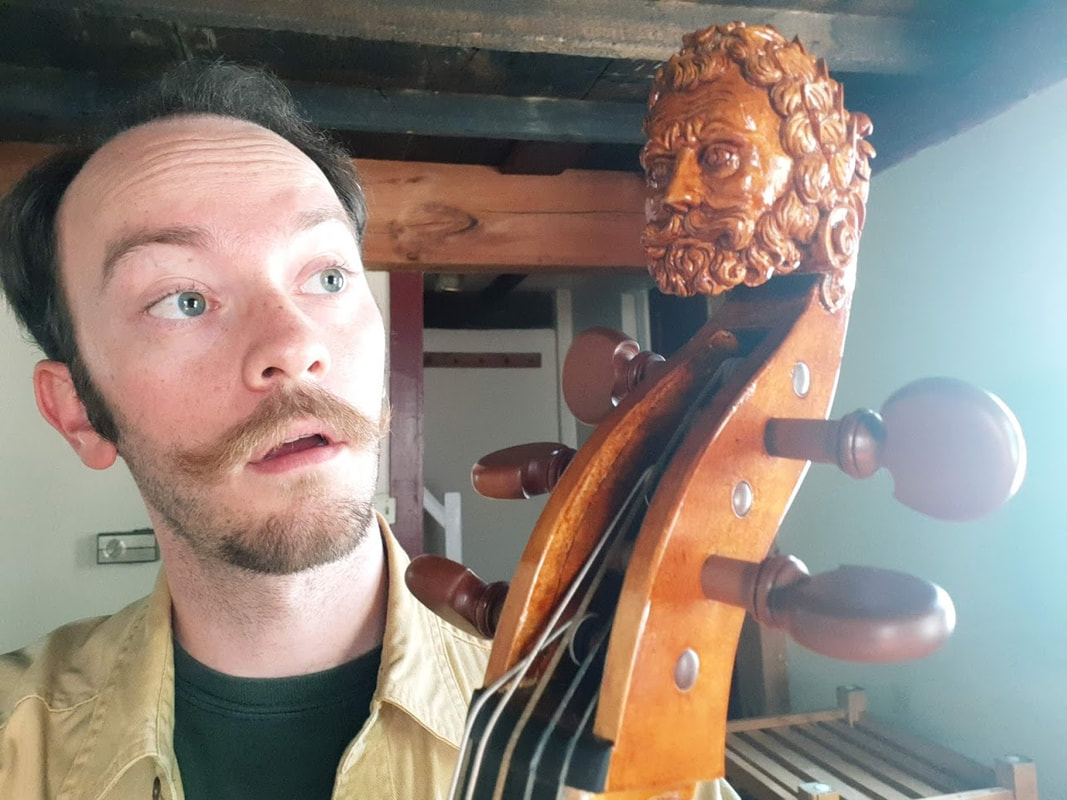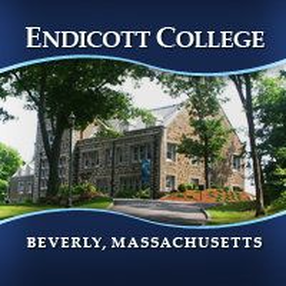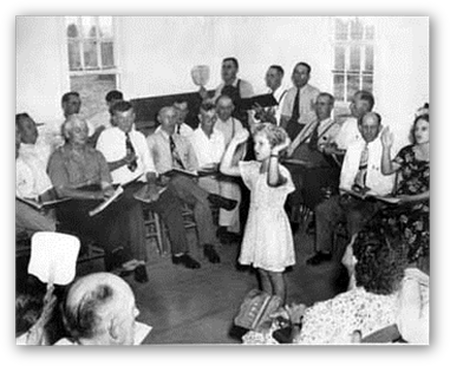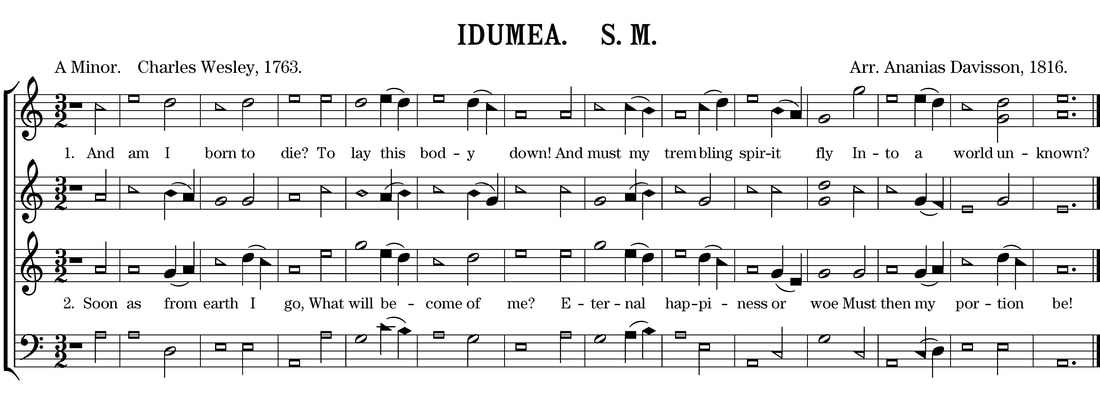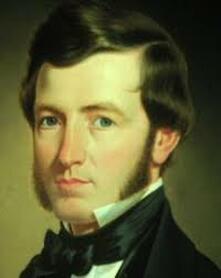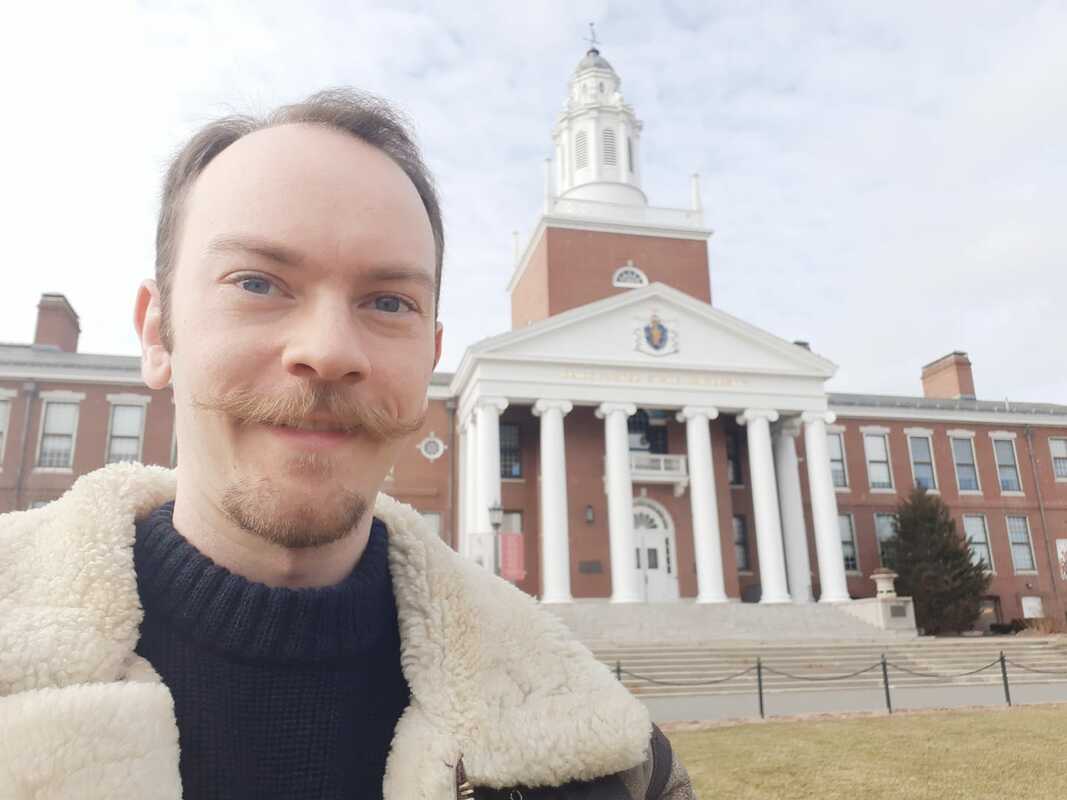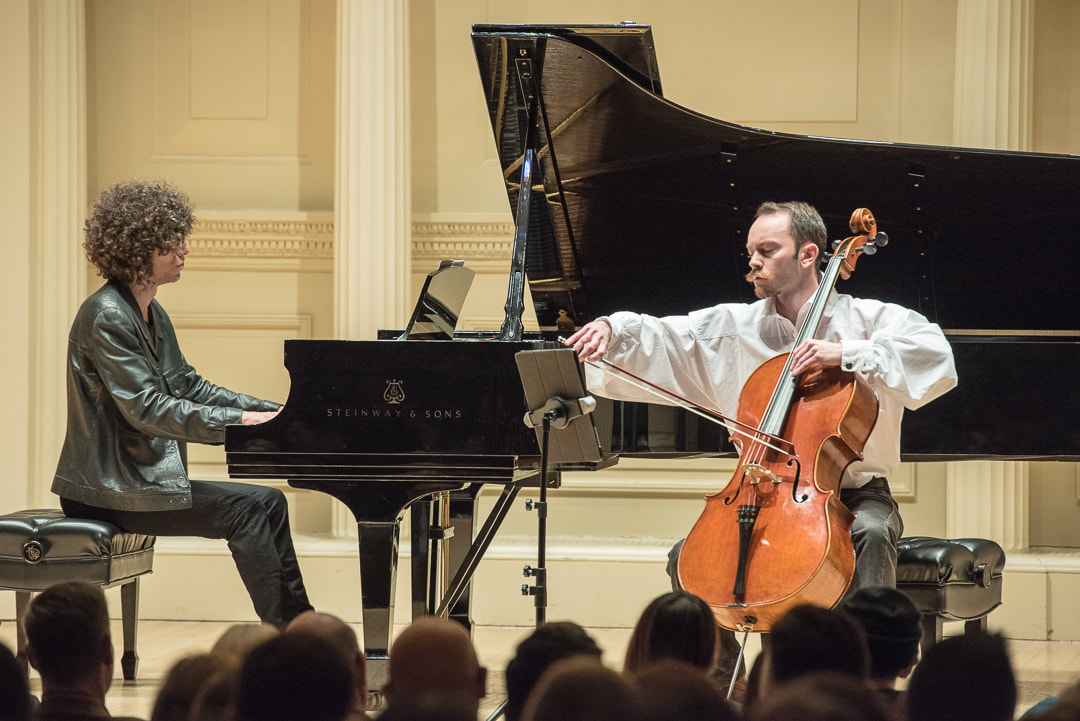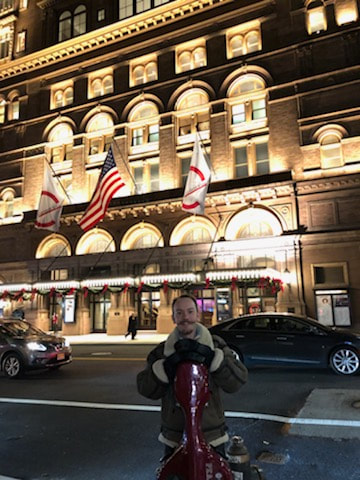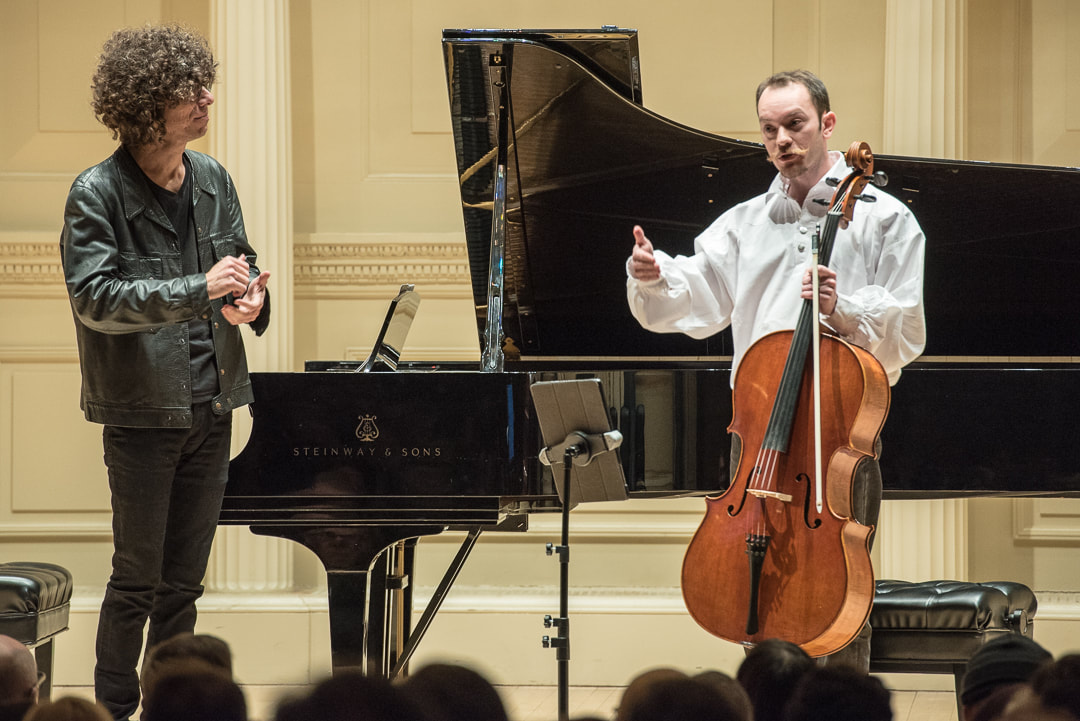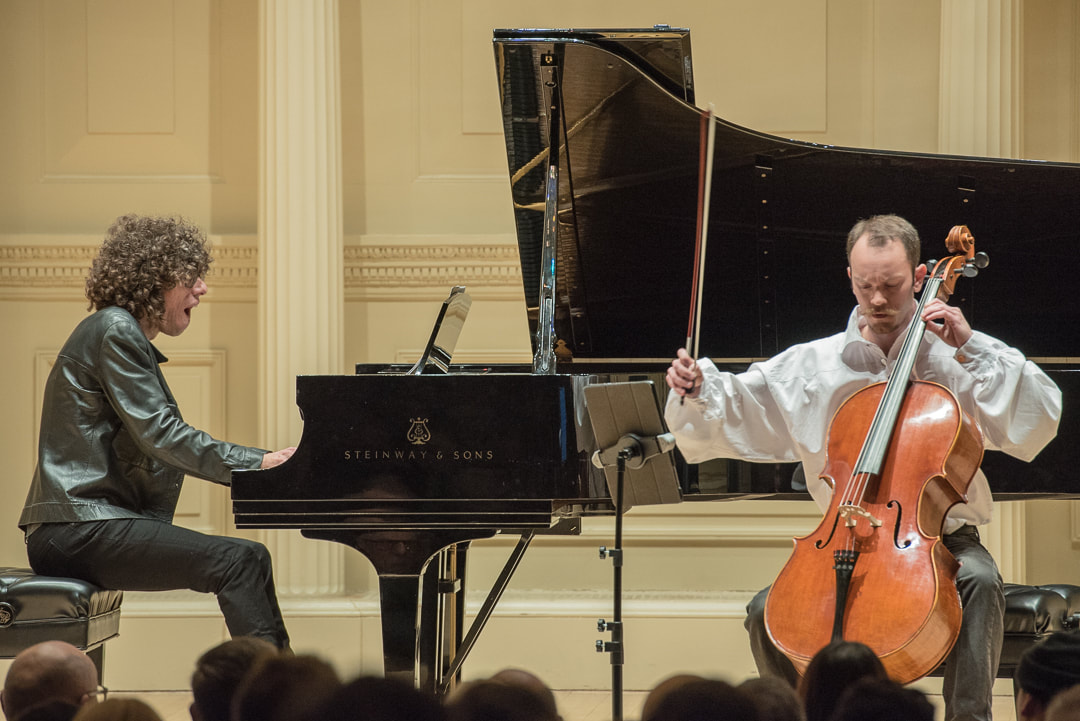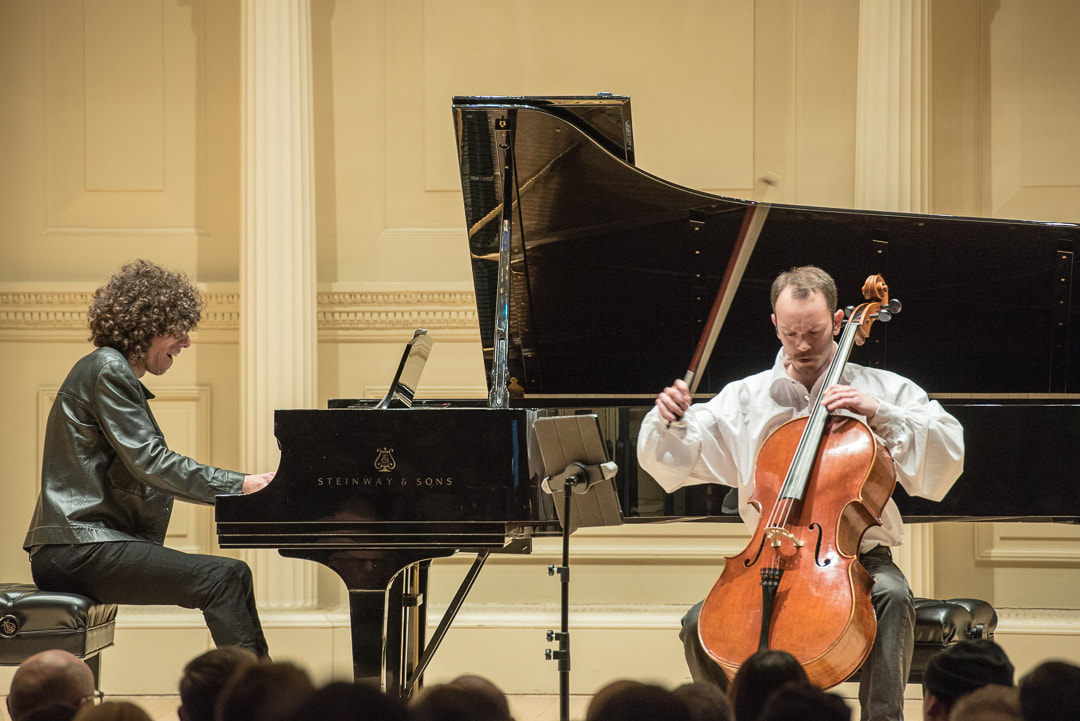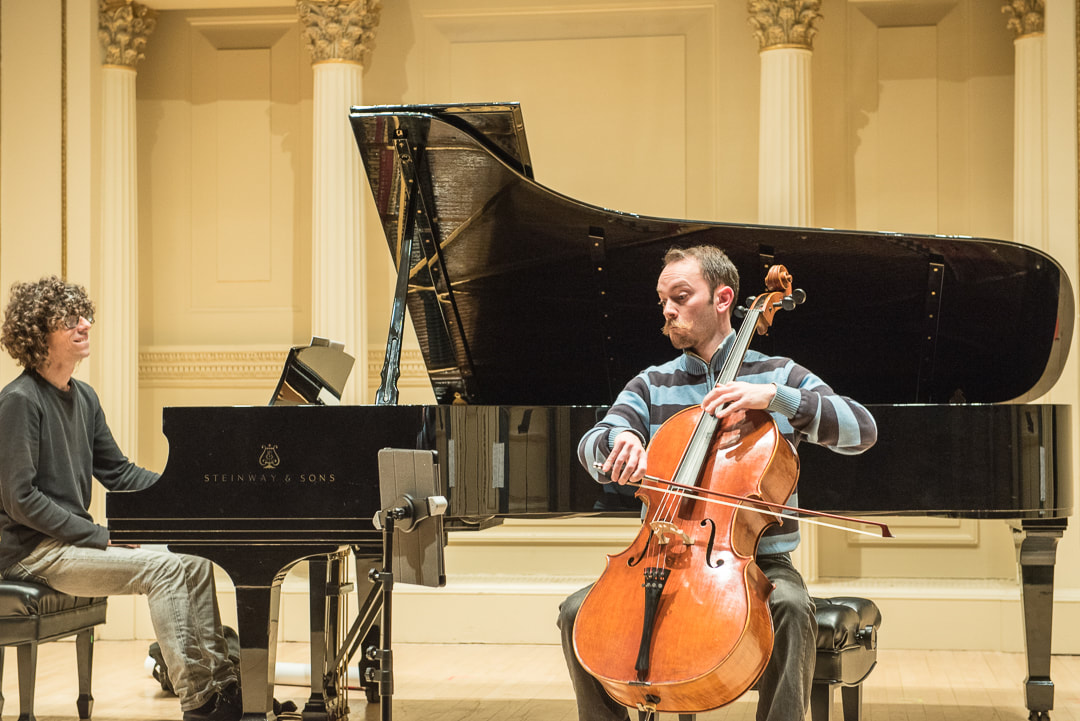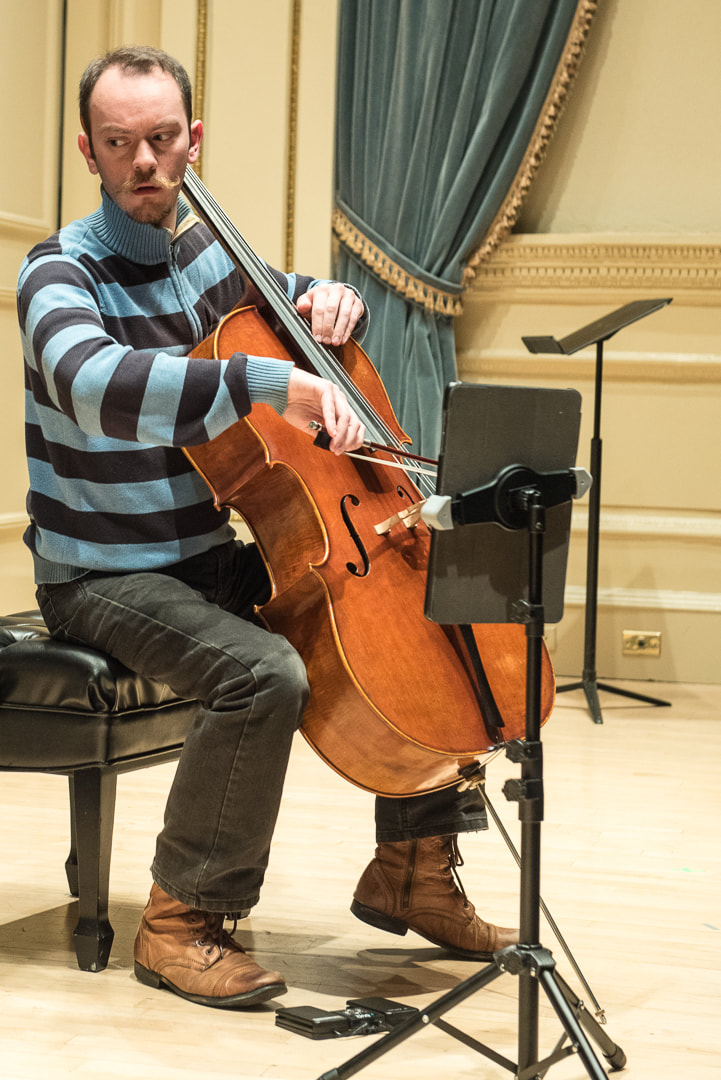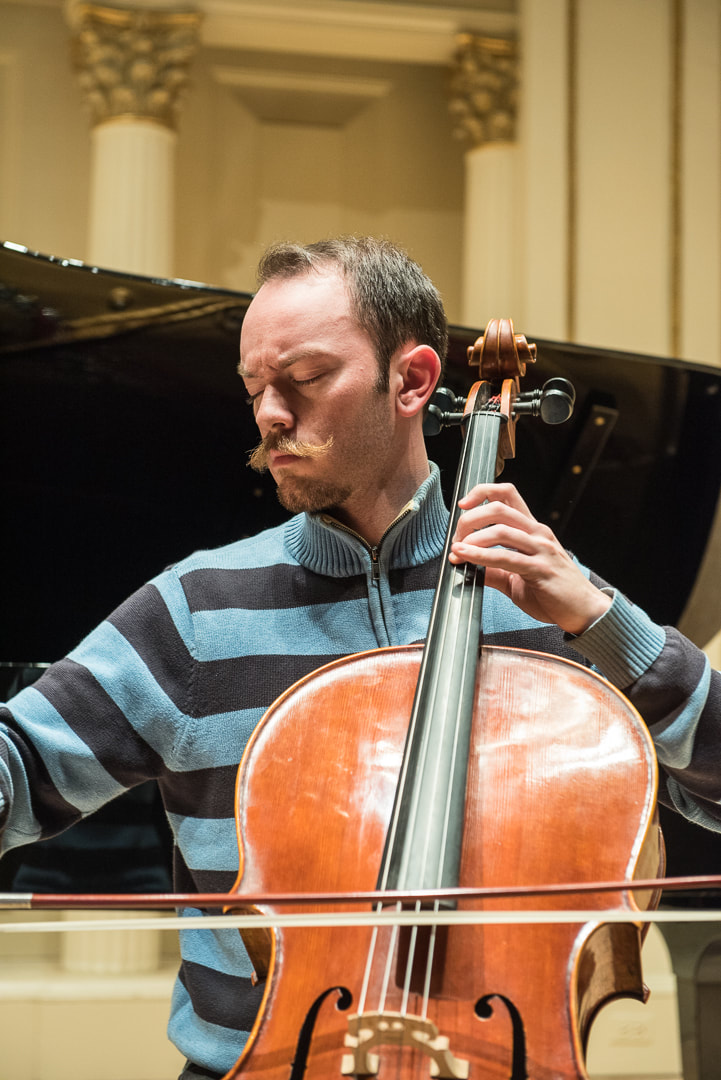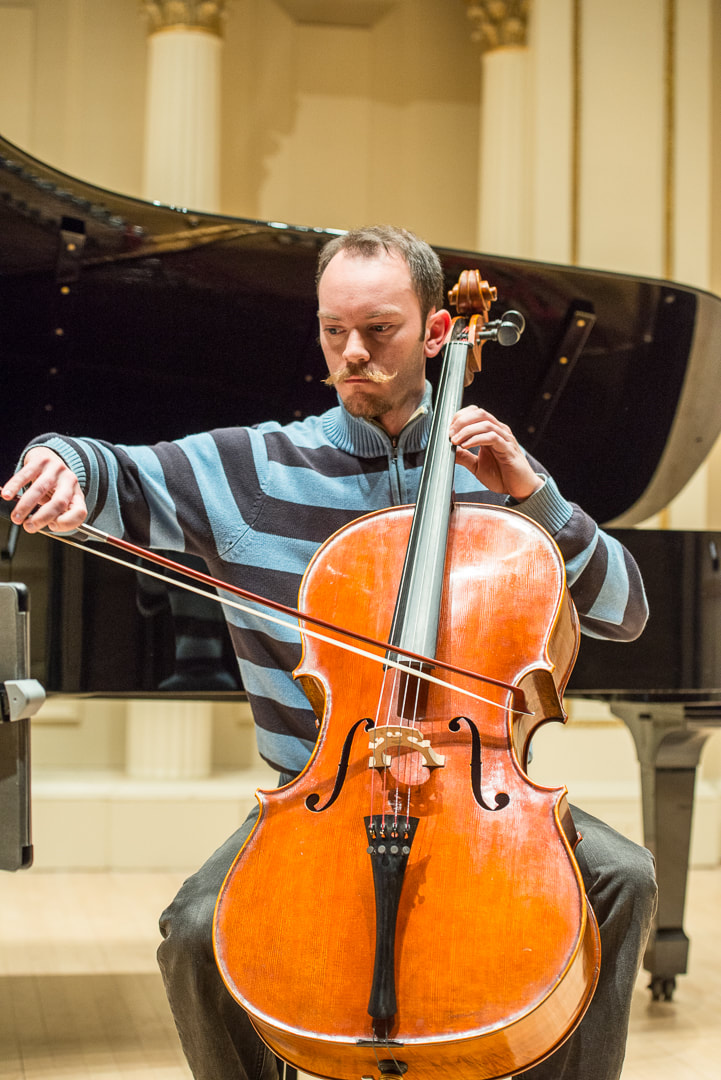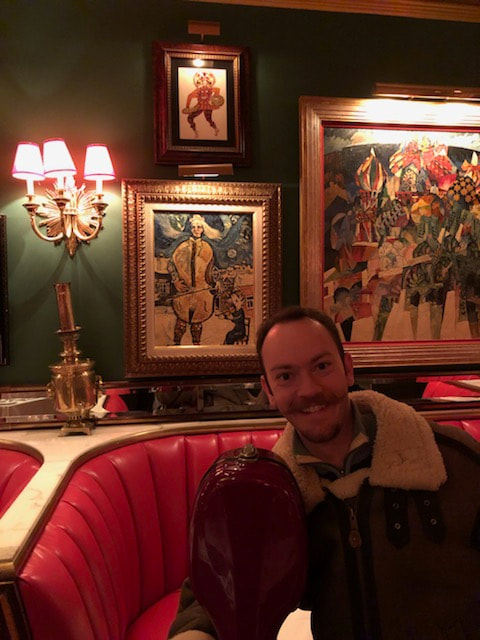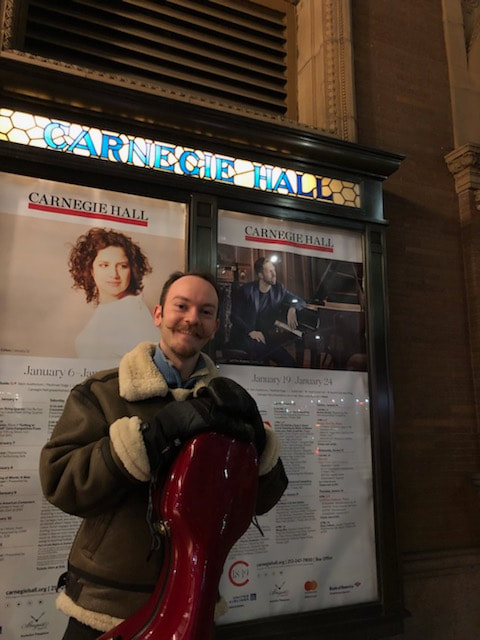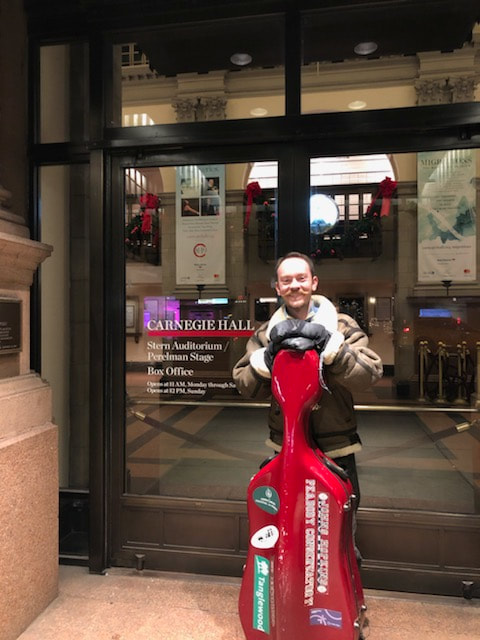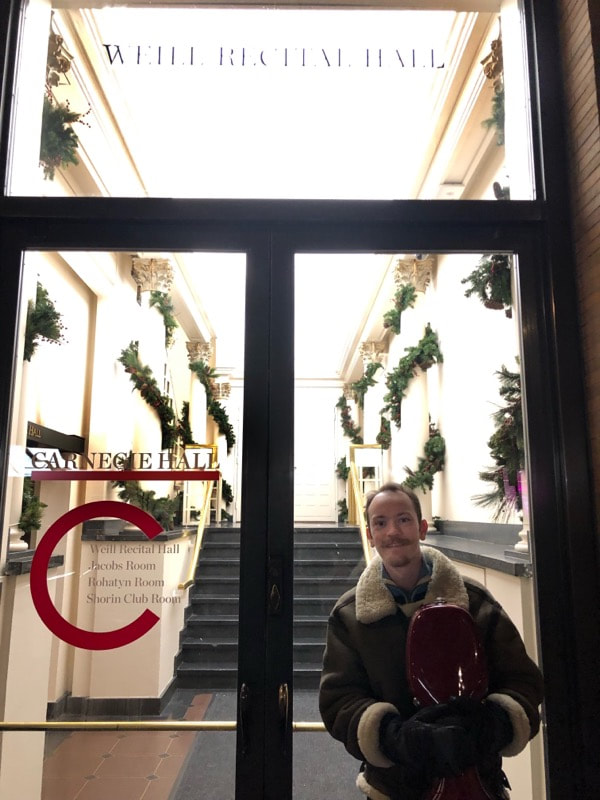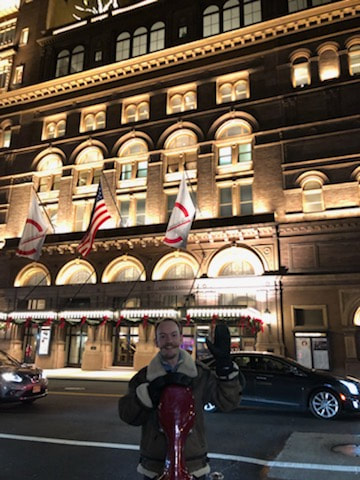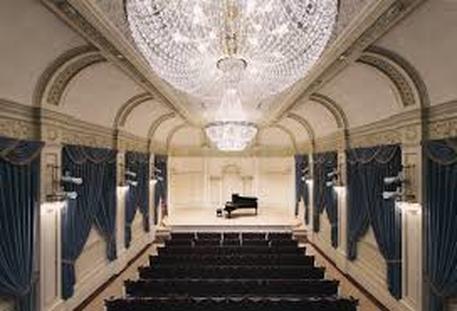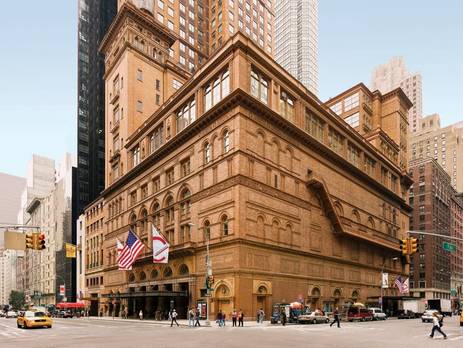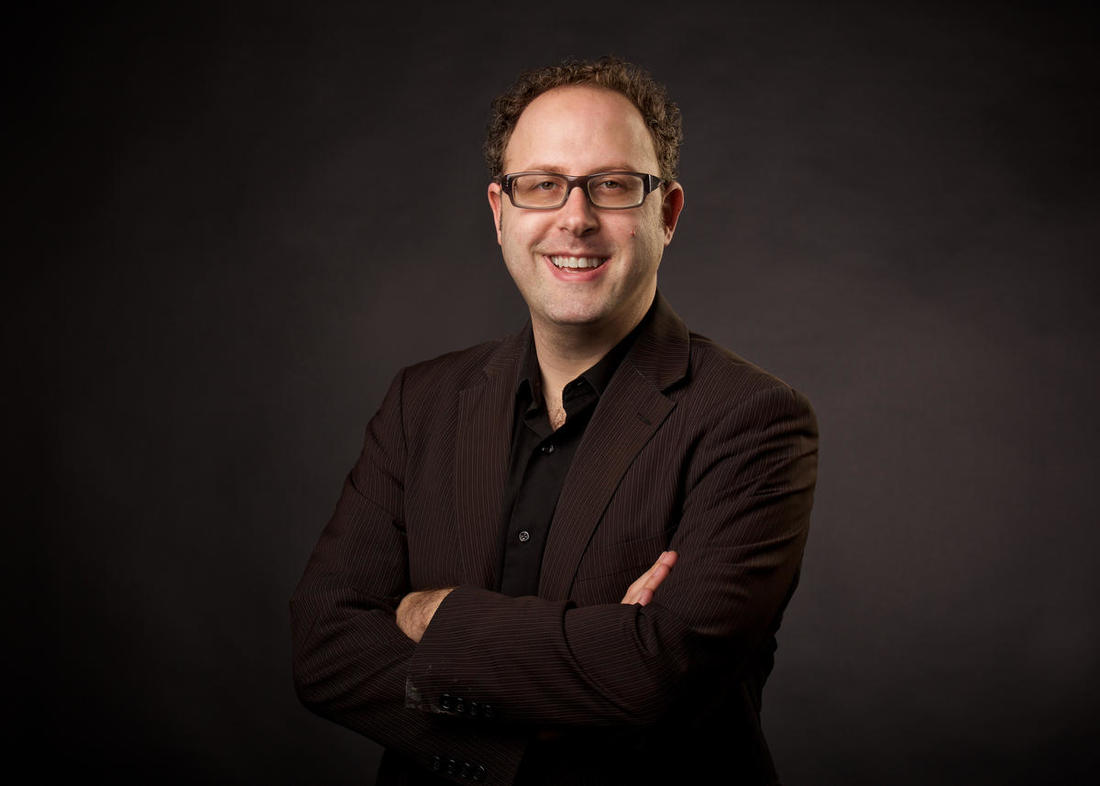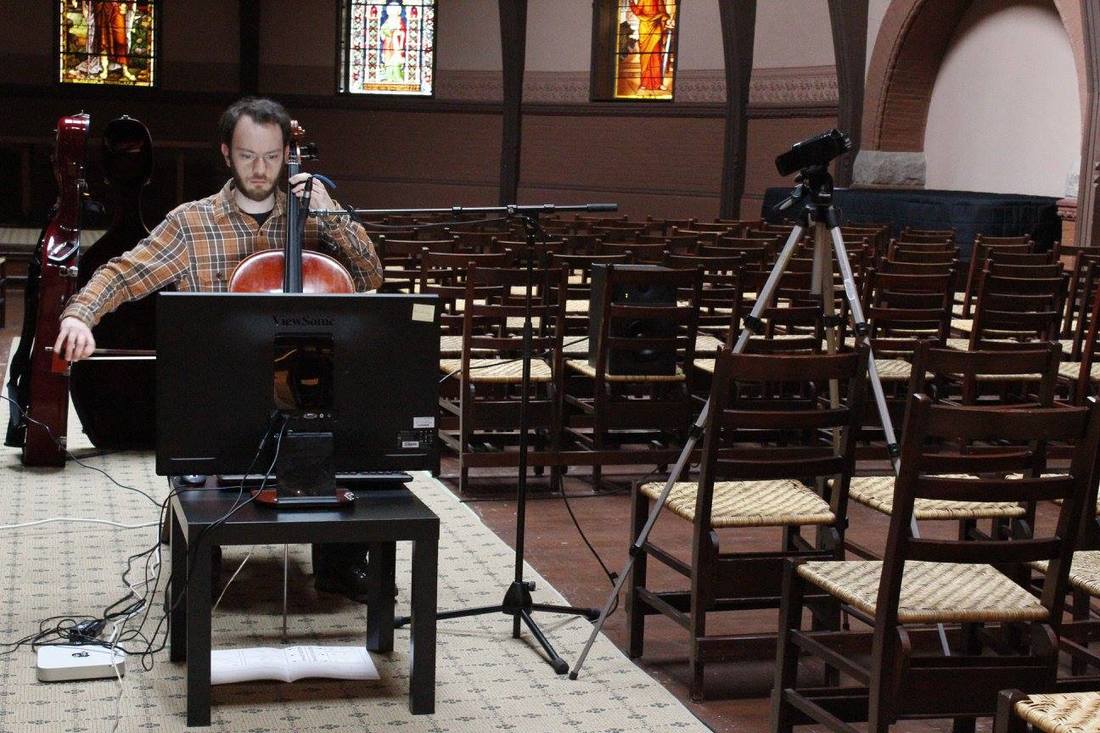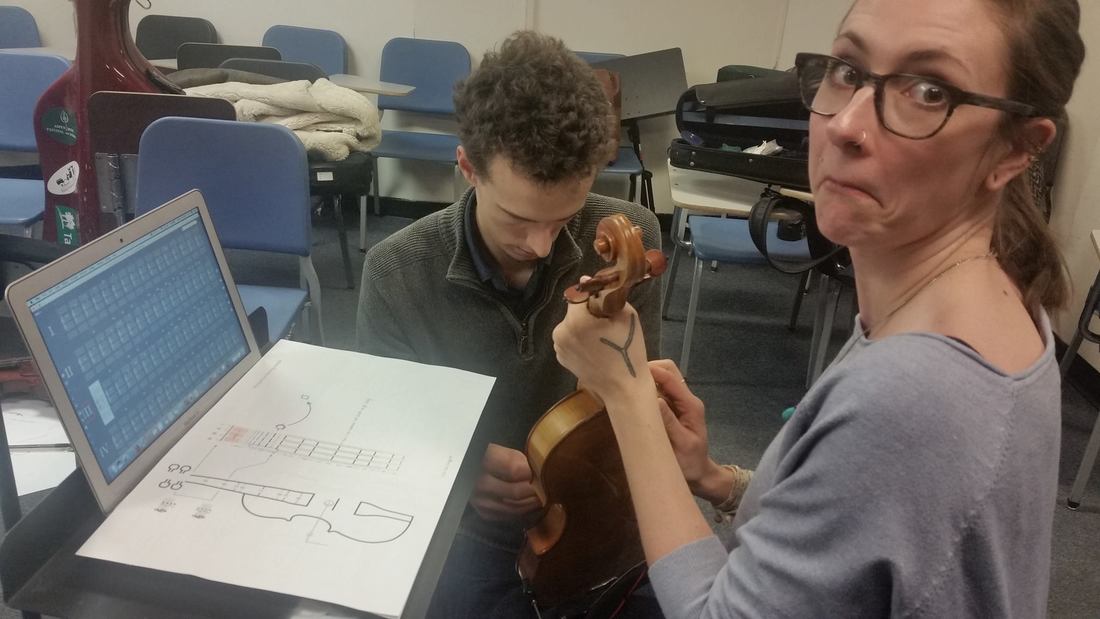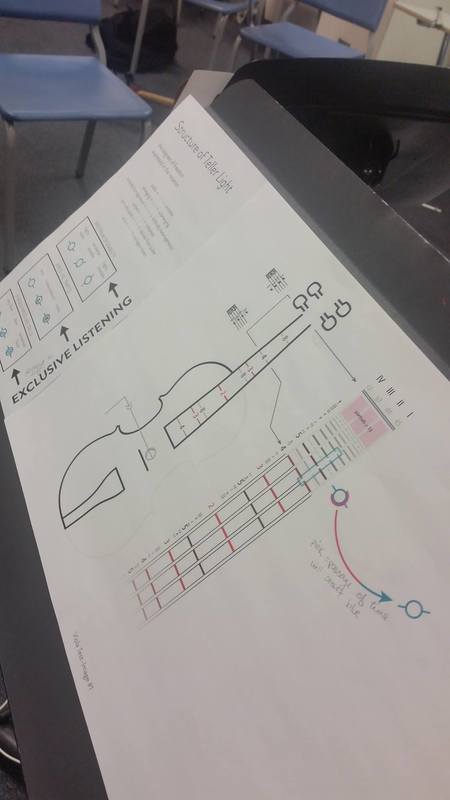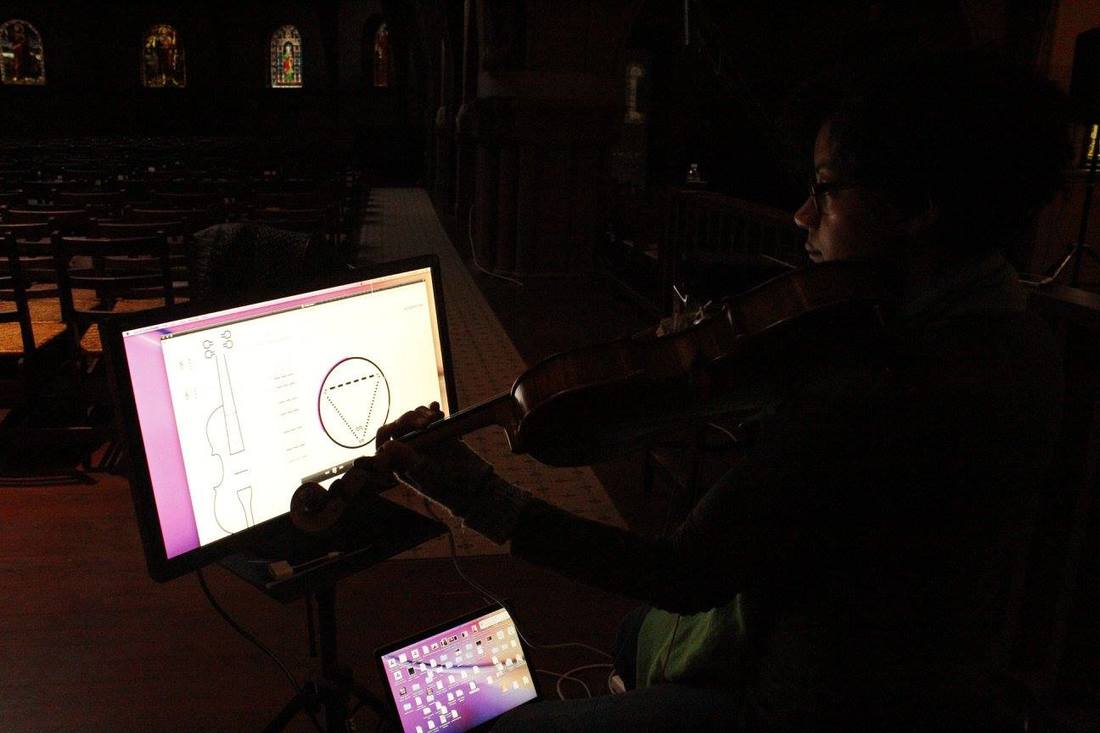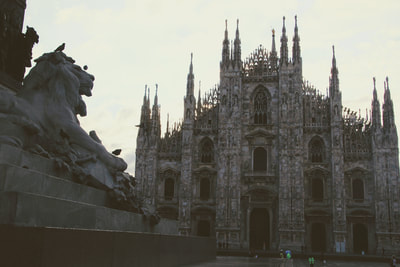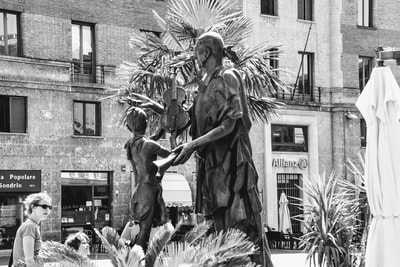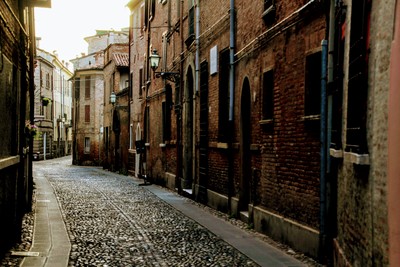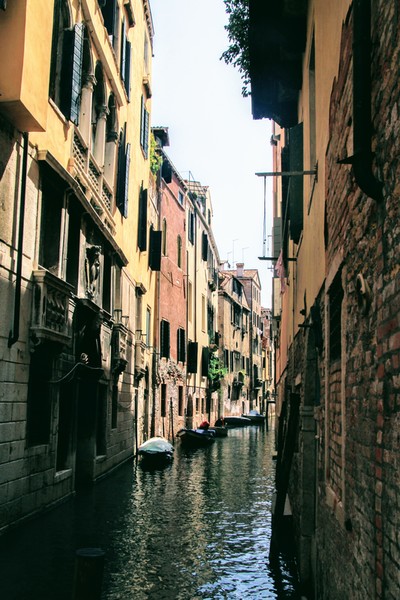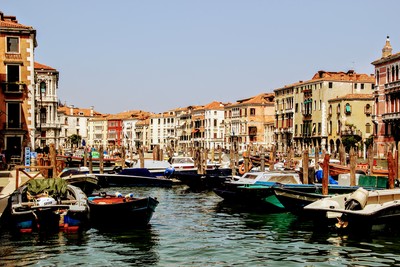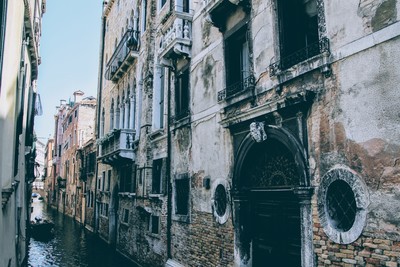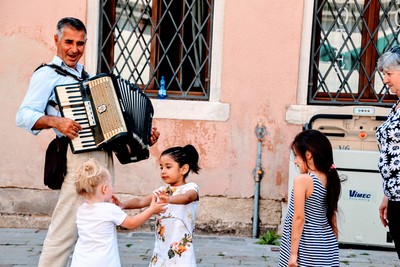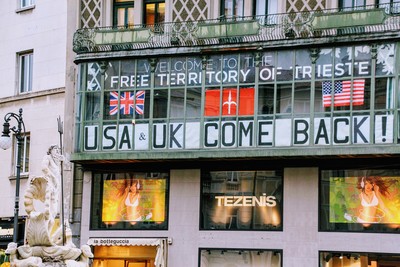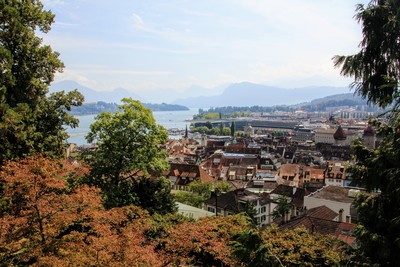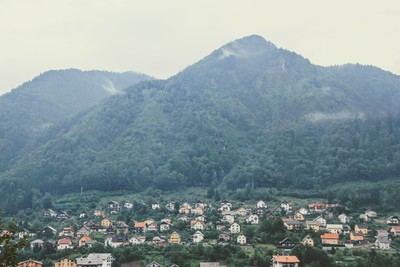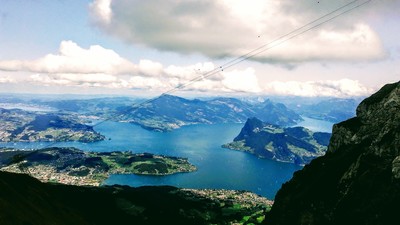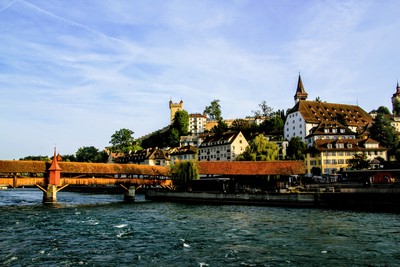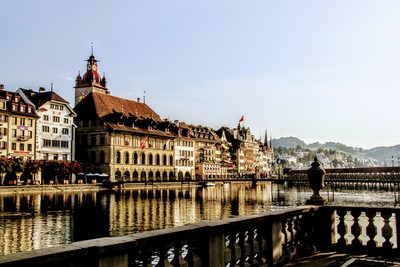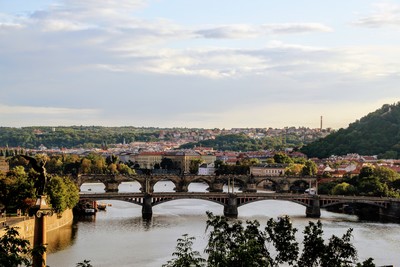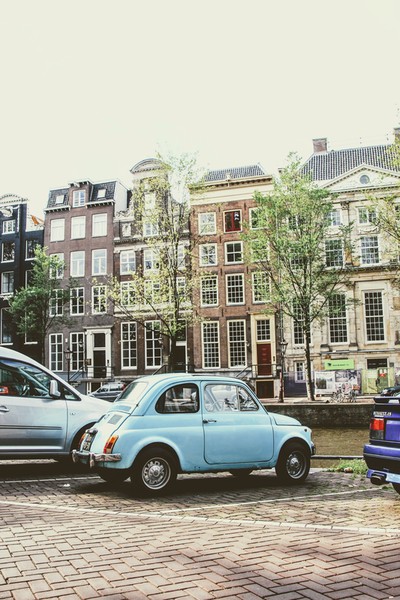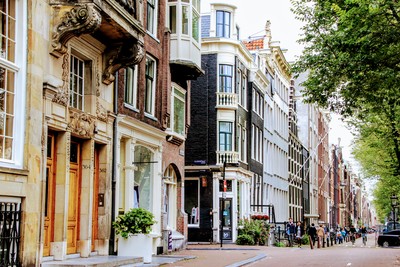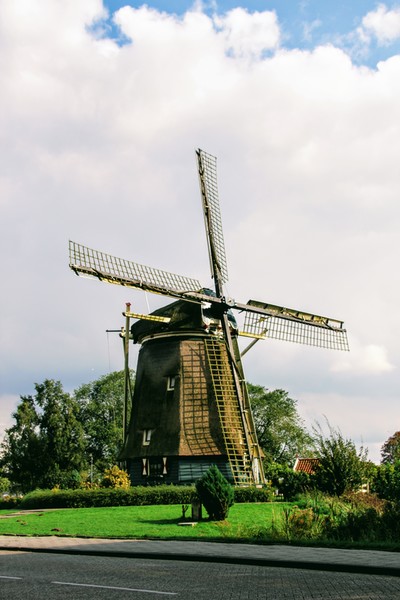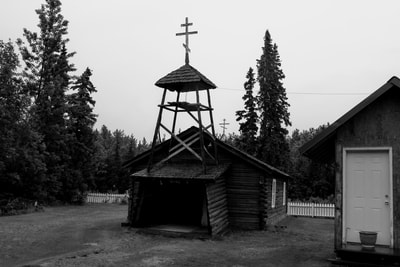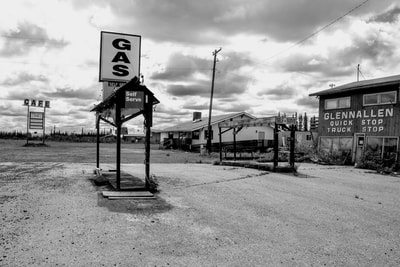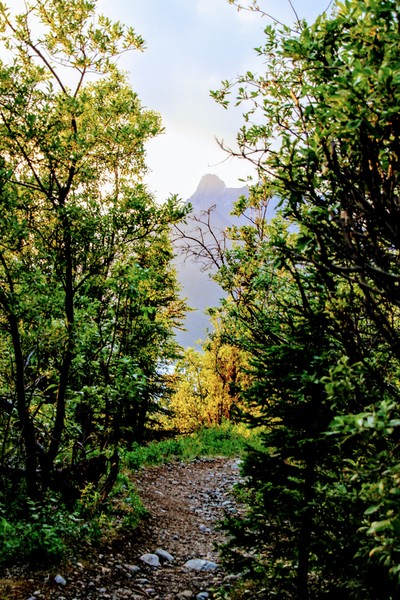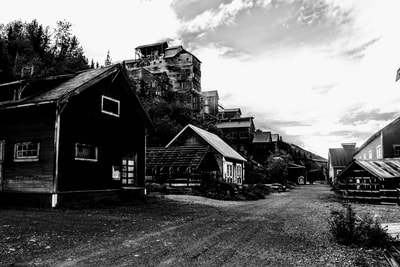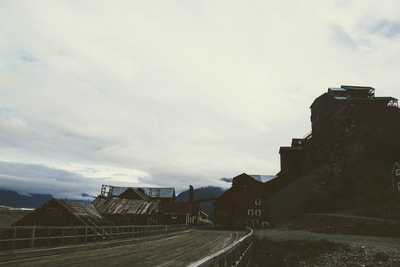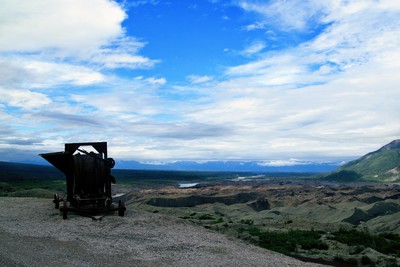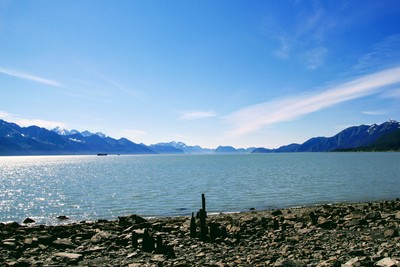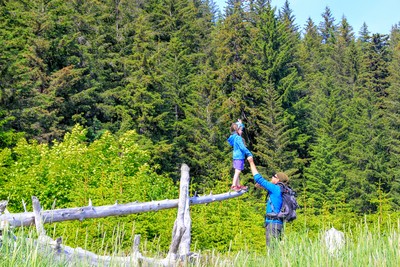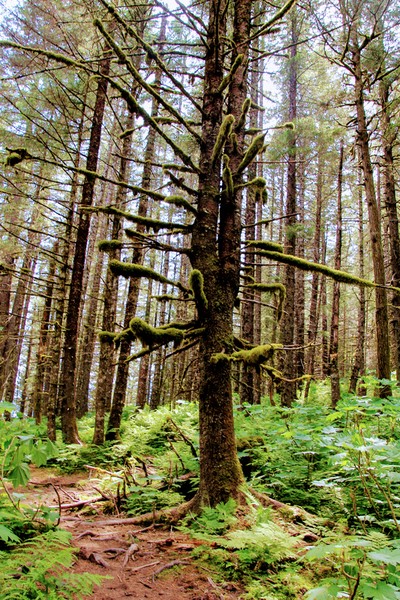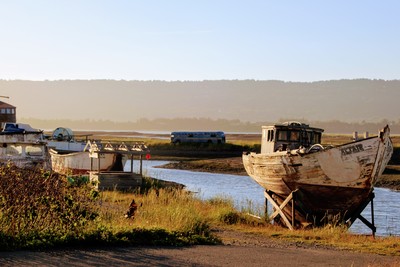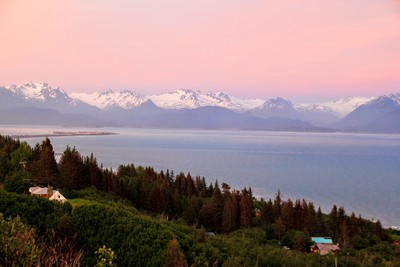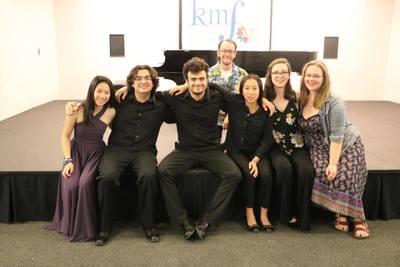|
I'm delighted to be performing a concert in Boston next week of the great chamber works of Giovanni Batiste Pergolesi, including his "Stabat Mater" for countertenor and strings. This concert will be performed on authentic period instruments, including my newly-acquired violoncello piccolo made by Katrien Vandermeersch in 2018. This is sure to be a memorable evening of beautiful music - please consider joining us! Details in the flyer below.
2 Comments
As part of my faculty duties at Endicott College, I enjoyed playing these two concerts with the Endicott Singers and Chamber Ensemble featuring choral and instrumental works by Christopher Tin, Caroline Shaw, Robert Bradshaw (a local Gloucester composer), Philip Glass, and more. The program centered around themes of displacement and migration, and included a few Roma (gypsy) folk tunes as well.
Congratulations to the students, faculty, and composers who helped create such a meaningful concert experience on campus. Lumens II from Endicott College on Vimeo. A young cellist carries with him his copy of the Bach Cello Suites all the days of his musical life - and so it will be for me as I travel by road, rail, and ferry next weekend to perform and record the complete Bach Suites hosted by the Martha's Vineyard Chamber Music Society. I'll be performing from memory on both modern cello as well a happy new Baroque violoncello piccolo made by Katrien Vandermeersch. I had the good fortune to study these suites with Dutch master cellist Anner Byslma for several years in Amsterdam. No authoritative manuscript of the Suites has survived to the present day, and the quandaries and opportunities for interpreters which arise from this fact lead to hours of spirited discussion between he and I over the years. My discovery and recognition of Bach's musical rendering of the fullness of the divinity of humanity informs my own teaching every day. Anner passed away in July of this year, and this performance is particularly meaningful to me as an avenue to share the fruits of our conversations together with the wider public. Saturday October 12th: Suites 1, 2, and 3 (7pm) Sunday October 13th: Lecture (3pm) and Suites 4, 5, and 6 (7pm) For those who can't make it to the island, stay tuned for the recording! For tickets and more information for those who can: https://www.mvcms.org/ **update**
Two articles published about the event: Preview article by Dean Rosenthal,"MVCMS Brings Us Bach's Unaccompanied Cello Suites "For classical music fans on Martha’s Vineyard, Columbus Day weekend will be a very special weekend. The Martha’s Vineyard Chamber Music Society will present a concert series, during which over the course of two evenings, Boston-based cellist Benjamin Swartz will play all six of Johann Sebastian Bach’s Unaccompanied Cello Suites. "Bach’s suites are among the most remarkable solo compositions ever written for the cello. From the opening notes that are nearly universally recognizable to the final cadences, it’s as if the music came out perfectly formed; the suites have long earned their place among the masterpieces of the era in which they were composed. Written during the period of 1717-1723, the suites are extraordinary in their ability to create the illusion of multi-voiced contrapuntal and polyphonic composition in a single musical line. As such, Bach’s fundamental genius when it came to manifesting the hidden secrets of melodies he created is without parallel in western music and so it is here with the Cello Suites. A detail one might add as well: each suite is structured in seven movements based on Baroque dance types, allowing for maximum compositional variety and, too, variety for us, the listeners. The music of the Cello Suites is so profoundly well-loved that the suites have been arranged and transcribed for many instruments. They are considered among Bach’s greatest musical achievements, but one must note that these compositions were little known and rarely performed until the great 20th-century cellist Pablo Casals took them up. "Here comes the special twist for those lucky enough to be on Martha’s Vineyard for this concert: we will be able to hear the suites on both a modern and Baroque cello as well as take in a lecture by Swartz, focusing on his in-depth research into the suites and their performance practice. Why? Unlike Bach’s solo violin sonatas, no autograph manuscripts of the Cello Suites have survived, creating a unique challenge for both scholars and performers. Swartz intends to unpack the details for us. "Swartz’s studies with his teacher, Anner Bylsma, focused on historically informed performance practice, and how the instrumental technologies of the Baroque era inform the interpretation of the Bach Suites at the time they were composed. He writes, “While it is impossible to truly know how this music sounded in Bach’s time, by focusing on technological differences such as catgut strings, the neck angle of the cello, the shorter fingerboard and the configuration of the Baroque bow, it is possible to gain significant insight into the sound world of their composition. On Martha’s Vineyard, the music will be played on both a modern cello and a recently commissioned 5-string Baroque cello by Katrien Vandermeersch so that audiences can experience first-hand the differences in sound and style between the two instrument technologies.” The concerts will also serve as a personal memorial to Swartz’s teacher, who died this July at the age of 85. "Swartz has long been interested in historically informed performance. As a Woodrow Wilson Fellow, on a program from his undergraduate days at Johns Hopkins University, he studied the historically informed performance practice of the Bach Cello Suites in Amsterdam, Holland. He later earned his postgraduate degree at the Royal Academy of Music in London, where he was awarded the Nancy Nuttall Early Music Prize. Since then, Mr. Swartz has concertized extensively in the United States and Europe, with a particular emphasis on historically informed performance practice, electroacoustic collaboration, and the exploration of neglected repertoire. Equally at home on the cello, Baroque cello, and the viola da gamba, he has gained increasing recognition for multi-instrumental virtuosity spanning the Arts Subtilior (a musical style characterized by rhythmic and notational complexity, centered on Paris, Avignon in southern France, and also in northern Spain at the end of the 14th century) to the present day. Currently a resident of Boston, he performs as cellist with Sound Energy, and teaches at Bridgewater State University, Endicott College, and the South Shore Conservatory. Highlights of his 2018-19 season included performances at Carnegie Hall, the Berliner Philharmonie, the Philharmonie de Paris, and the Lucerne Festival. "The concert of the first three suites on Saturday, Oct. 12, at 7 pm, and the second concert featuring the remaining three suites will be on Sunday, Oct. 13, at 7 pm. All three events will be at the First Congregational Church of West Tisbury. Ticket prices for each of the two concerts is $20, or $30 for both concerts. Tickets may be purchased online at MVCMS.org, or at the door. The Sunday lecture is open to the public free of charge and starts at 3 pm." A second article by Louisa Hufstader reviewed the concert in Cellist Kicks of Fall Chamber Music Festival "Today’s world melted completely away for an audience of about 50 music lovers Saturday night when Boston-based cellist Benjamin Swartz performed the first three of Bach’s six Unaccompanied Cello Suites at the First Congregational Church of West Tisbury. "Mr. Swartz plays the second three Bach cello suites at the church Sunday beginning 7 p.m., preceded by a 3 p.m. talk at the West Tisbury library. The intimate sanctuary of the 17th-century West Tisbury church, with its simple, classical design and near-perfect acoustics, proved to be the ideal environment for Bach’s early 18th-century cello solos. "To help take the audience even further from the present day, Mr. Swartz dressed the part in an open-collared white shirt with wide, bloused sleeves. 'I donned the puffy shirt for the occasion,' said Mr. Swartz, whose upturned mustache and serious gaze gave him the look of a young man in a Dutch master portrait. "More to the point, Mr. Swartz played the first of the evening’s three works — Suite No. 1 in G major, with its famous, ascendant Prelude — on an instrument from Bach’s time. 'This is an experiment in historically informed performance,' he said during his introduction. 'I’m holding a five-string violoncello piccolo with gut strings, I’m holding a baroque bow,' he said. "Along with the fifth string not found in modern cellos, Mr. Swartz’s instrument was topped with the carving of a curly-haired head above the tuning keys. It has no stand, so the cellist gripped it between his knees as he sat on the edge of a piano bench as he played Bach’s music on the gut strings. "Mr. Swartz turned to a modern cello for the second and third suites, taking about a five-minute break between each of the three during which audience members chatted sociably before welcoming him back to the stage with applause. This weekend’s concerts and Sunday afternoon presentation at the library kick off the Martha’s Vineyard Chamber Music Society’s fall cello festival, which continues Oct. 26 at the library with a 3 p.m. concert for two cellos." 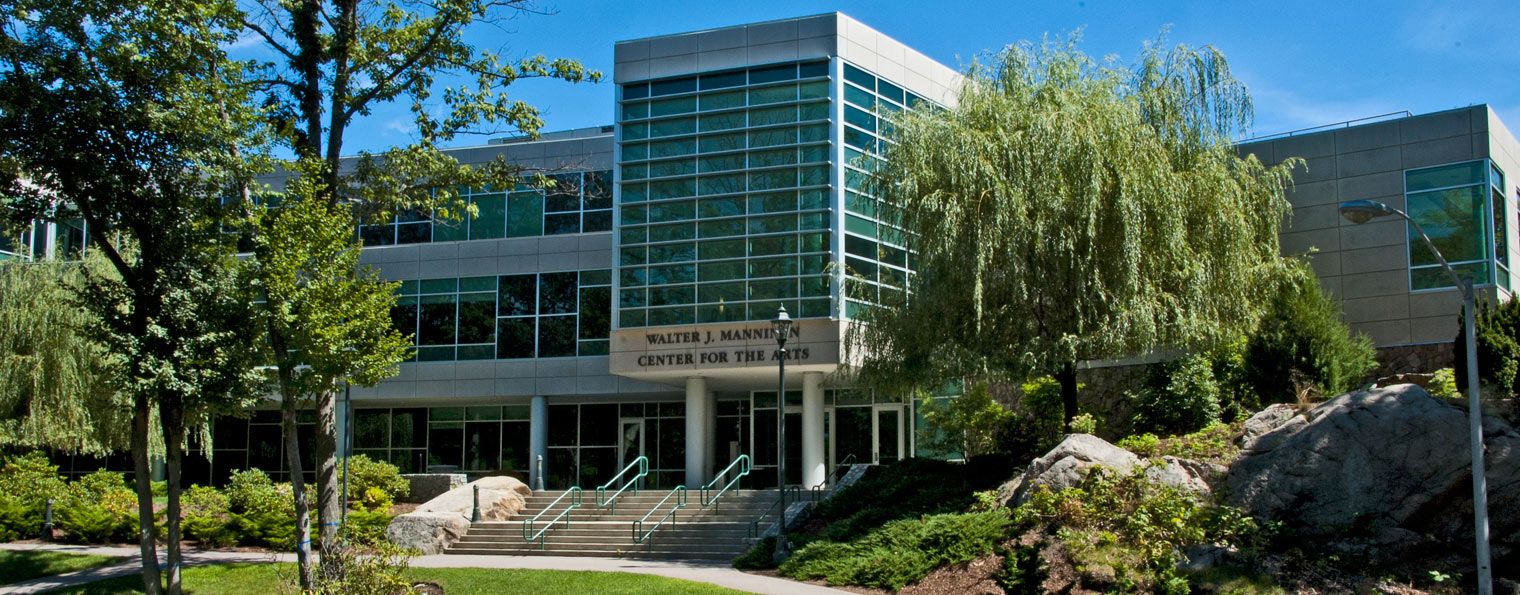 I'm delighted to announce that I have recently begun a new position as lecturer in cello and chamber music at Endicott College in Beverly, MA! This new position will involve teaching the cello studio as well as giving performances throughout the semester. I'm looking forward to working in the beautiful Manninen Center for the Visual and Performing Arts and to making music with faculty colleagues later this semester.
Last year Sound Energy participated in a revival performance of Marti Epstein's 1992 "Hero and Leander" for violin, viola, cello, and puppet theater. Hero and Leander is the story of how Leander, a young man from Abydos, falls in love with Hero. Hero is a priestess of Aphrodite who lives in a tower on the opposite side of the Hellespont strait. To get to her in the tower, Leander would swim every night across the strait to be with her. Hero would light a lamp at the top of her tower to guide his way. But one stormy winter night, the waves tossed Leander about as he swam the strait, and the breezes blew out Hero's light. Leander lost his way and was drowned by Poseidon.
Last year Sound Energy performed this work for the first time since its premiere in Germany in 1992, this time at Seully Hall at Boston Conservatory at Berklee. Here are two excerpts from that performance: in the first, Leander swims across the strait and is greeted by Hero
Leander's drowning
To engage with the spectrum of American music is to embrace an idiosyncratic, sometimes archaic worldview of inclusivity, pluralism, and diversity. After all, a genre like jazz owes as much to African polyrhythmic structures as it does to ragtime, blues, and European military band music. Appalachian music draws as freely from its origins in Irish and Celtic traditional music as it does with African-American blues, English ballads, and Anglican hymns. To be fully American is first to recognize this multilingual heritage of cultural and stylistic antecedents, and subsequently to channel these myriad sources into a unique language of one’s own.
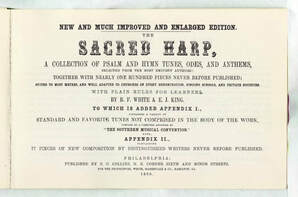
In particular, one of these singular strains of American music with a particular New England – and, for that matter, South Shore – connection is the Sacred Harp music of the late 18th and early 19th centuries. Sacred Harp singing is a tradition of sacred choral music originating in New England between 1770 and 1820, with roots stemming back to the four-part counterpoint of the Anglican Church. The term “Sacred Harp” is synonymous with the human voice, and takes its name from a historically significant book published in 1844. All Sacred Harp music is shape-note music, a didactic genre where syllables of a specific solfege alphabet were sung as a way to teach musically illiterate persons how to sing. As participatory artistic practice with no requirement even of musical literacy, Sacred Harp was a potent democratizing force in congregational New England. Massachusetts was an important center of Sacred Harp composition and publication, thanks in large part to composers such as the Bostonian tanner William Billings, Supply Belcher of Framingham, and Jacob French of Stoughton.
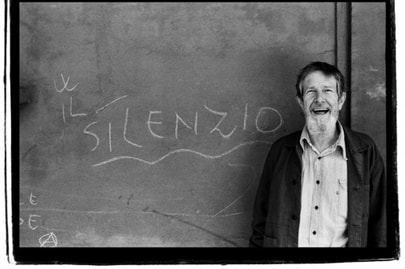
Let’s jump back into our time machine and fast-forward two hundred years, to Boston in September of America’s bicentennial year, 1976. On September 29th, John Cage’s sprawling commission Apartment House 1776 was premiered in Boston, which included his 44 Harmonies, which were Cage’s re-imaginings of Sacred Harp hymns arranged for string quartet. In his 44 Harmonies, Cage resets these old hymns in new ways by omitting or adding voices, interspersing silence, and applying 20th-century, anachronistic sonorities to this 18th-century repertoire. Cage works within the original tunes, plays with them, distorts them, and what remains is a contemporaneously relevant conversation between the old and the new
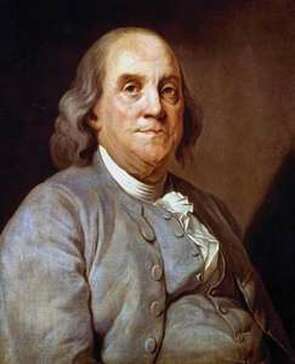
On February 24th, I curated a program at South Shore Conservatory in Duxbury, MA, comprising these two bodies of work set in clear dialogue with one another. Along with my quartet-mates Emily Hale, Daphne Manavopoulos, and Lauren Nelson, we presented a judicious selection of these four-part songs for string quartet were divided into four “hypersuites,” titled: South Shore, Redemption, Midwinter, and Rapture. In South Shore, Sacred Harp tunes and Cage harmonies with familiar titles such as Hingham, Weymouth, Duxbury, Scituate, Cohasset, and Bridgewater. In Redemption, Sacred Harp and Cage are set against the raucous and idiosyncratic string quartet written by Benjamin Franklin (yes, that Benjamin Franklin!), written for string quartet without the use of the left hand. In Midwinter, we explored themes of darkness, seasonal change, and death. To close, Rapture celebrates the transcendent, the euphoric, and the ecstatic in music, book-ended by Supply Belcher’s gorgeous hymns titled “Rapture.” In the link above you can hear an abridged version of the longer live 4-part concert program.
Our string quartet chose to perform this program on historical instruments in a historically-informed 18th-century style, including the John Cage selections from 1976. During the American colonial era, string instruments would have been strung with gut strings (as opposed to steel strings today), which, along with lighter bows, thicker bridges, et al., gives these instruments a rough, earthy sound that is truly “of the flesh.” Additionally, this was performed at South Shore Conservatory's campus in Duxbury, which is a converted New England church and as such a lively and resonant acoustical space. To perform early music on early instruments in a resonant space, is to hear this music afresh, perhaps as it was truly meant to be heard.
Four live concert recordings from Sound Energy's program at the Parish Center for the Arts in Westford, MA, earlier this month. The program included works by Tamar Diesendruck, Giacinto Scelsi, Kaija Saariaho, and Anton Webern.
Quick on the heels of my Carnegie Hall debut recital, today was my first day on campus as Bridgewater State University's new cello professor! Bridgewater State has a long history as a teacher's college in Bridgewater, MA, and is the largest public university in Massachusetts outside the UMass system. I'm looking forward to building the cello studio here and performing with faculty colleagues throughout the semester. Here we go, let's make some 🎵🎵
I'm delighted to announce that last Sunday's recital at Weill Recital Hall at Carnegie Hall was a great success! The sold-out concert was a wonderful opportunity to premiere Julian Gargiulo's new cello sonata, and I was appreciative to see so many friends and family in the audience. Thanks everyone for your well-wishes and support along the way. Pictures from the performance credited to Tina Ravitz photography.
A live concert performance of Rachmainoff's Sonata for Cello and Piano from earlier this month in Duxbury, MA
A few audio samples of the repertoire performed at my King's Chapel solo recital earlier this month in Boston:
I'm delighted to announce my Carnegie Hall debut on Sunday January 6th 2019 at 7:30pm! I'll be premiering Julian Gargiulo's new cello sonata alongside other finalists in the Getting to Carnegie Competition. If you're in New York City then I'd love to see you there!
Earlier this year I was involved in recording for the new Ben Levin Group album called "Our Place," which was released last month. Ben, lead guitarist with Bent Knee (with whom I've recorded several albums as well on the Sony label), takes subtle motivic & orchestrational asymmetries and develops them throughout the duration of the album - take a moment to explore his music below!
https://benlevingroup.bandcamp.com/album/our-place At New Music Gathering in Boston last month, Sound Energy revived Betsy Jolas' evanescent and ethereal "Quatuor II," giving the piece its second American performance and third recording in the piece's 50+ year history. The audio recording of the live performance of this exceptionally difficult piece can be heard below. https://www.youtube.com/watch?v=-tshC7uO07k&feature=youtu.be This week marks the first of four festivals this summer season in which I'll be performing & teaching. On Friday, Sound Energy will perform Betsy Jolas's Quatuor II (1969) at New Music Gathering in Boston, alongside coloratura soprano Emily Thorner. In June I'll be performing at the Summer Institute for Contemporary Performance Practice (SICPP) at New England Conservatory. In July I'll be returning to my summer home at the Killington Chamber Music Festival in Rutland, Vermont, as artist-faculty in cello & chamber music. In August, I'll perform contemporary orchestral works at the Lucerne Festival in Switzerland, and in September the orchestra will continue its concerts on tour to Paris, Hamburg, Cologne, and Berlin. Here's to another three months living out of a suitcase and traveling the world with my trusty companion, Mr. Cabinbaggage Swartz!
New music can often be difficult to follow - unexpected turns, strange timbres, unpredictable shifts in harmony. Fortunately for the contemporary music community, the YouTube channel Incipitsify has been uploading avant-garde works paired with facsimile editions of their scores. Hear Sound Energy's recording of Marti Epstein's massive "Hidden Flowers" from our guest artist feature at Boston Conservatory last season: Last week SE friend Noam Faingold was interviewed on Tulsa NPR, which aired the complete premiere performance recording of Noam's "The Abyss Looks Back," commissioned by SE in 2016. You can have a listen to the podcast version of Noam's interview here: http://publicradiotulsa.org/…/classical-tulsa-podcast-inter…
Sound Energy completed its spring 2018 residency at Temple University last week, where we premiered seven new works by TU undergrad & graduate composers, including Evan Kassof's "Excerpts from the Sea," available here:
https://soundcloud.com/evan11235813/kassof-excerpts-from-the-sea-live A few videos from Sound Energy's recent performance at Temple University, as part of its collaboration with conTemplum and the TU Department of Music. SE will return to Philly in two weeks to perform seven world premieres, all works by TU undergraduate & graduate composition students with whom we've coached & workshopped throughout the semester, to conclude our Spring semester residency there. Last week Sound Energy revived Marti Epstein's "Hero and Leander" (1992) for string trio and puppet theater in a live performance at Seully Hall at The Boston Conservatory, 22 January 2018, working closely with the composer and with shadow puppetry by Deniz Khateri.
Click below for video of two short excerpts from the production: Scene Two (Night falls. There is no moon. Leander swims through the sea towards the light in the tower which is Hero's Room.) Scene Four (Leander tries to swim through the stormy sea to be with Hero. He cannot see the light in the tower which guided him before. Eventually, Leander drowns. Morning comes. The rain subsides. Hero still waits.) You can also find the complete performance here. Why do we study music? What do we hope to gain from this inquiry, and how do we do this most successfully? Earlier this year I joined the faculty at South Shore Conservatory (Hingham, MA) and, in my statement of position on the teaching of music, I attempted to answer a few of these questions: http://sscmusic.org/benjamin-swartz/
This audio recording is from Sound Energy's residency at Dartmouth College in Spring 2017, culminating in workshops & performances including this world premiere of Daniel James Miller's towering soundscape "Teller Light" for amplified violin, viola, cello, and live electronics. SE worked closely with Daniel to develop a novel notational system based on real-time algorithmically-generated animated score notation. Performed in Rollins Chapel at Dartmouth in Hanover, New Hampshire.
Videos of the performance will be posted soon! https://soundcloud.com/sound-energy-trio/daniel-miller-teller-light-2017for-amplified-violin-viola-cello-and-live-electronics What is a typical rehearsal like? How do we communicate linguistically about differences in musical ideas, and what is involved in the process of learning music? What about writing your own music? Ben Levin wrote a new piece for his YouTube series and documented every stage of the process from conception to execution - here I am at work! From Anchorage, Alaska, to Zandvoort aan Zee, Holland - what a summer! By the numbers: 19 concerts performed, 5 music festivals, 10 flights, 8 trains, 7,400 miles driven, 8 countries, and 3 months living out of a suitcase. A Koelsch in Cologne, a Pilsener in Plzen, a Heineken in Amsterdam, a Chuli Denali Stout at the footsteps of "the Great One," and mountaineering through 3 of Alaska's 4 national parks. From teaching at the Killington Music Festival in Vermont, to performing at the Newport Contemporary Music Festival, to touring with the Lucerne Festival Orchestra Academy through Switzerland and Germany - it's nice to be back in Boston and not to carry my life in a suitcase anymore!
Here are a representative handful of pictures from my summer tour. Boston - Anchorage - Wasilla - Talkeetna - Denali - Fairbanks - North Pole - Delta Junction - Glennallen - Copper Center - Kennecott - McCarthy - Glacier View - Seward - Homer - Hope - Newport - Burlington - Killington - Zurich - Lugano - Milan - Cremona - Parma - Bologna - Ferrara - Venice - Trieste - Slovenia - Salzburg - Mittenwald - Lindau - Lucerne - Frankfurt - Cologne - Hamburg - Prague - Plzen - Amsterdam - Ouderkerk aan de Amstel - Bloemendaal aan Zee - Zandvoort aan Zee - Boston During my undergraduate years as a double-degree student at Johns Hopkins University and the Peabody Conservatory in Baltimore, I was fortunate to be a recipient of the Woodrow Wilson Undergraduate Fellowship. Upon completion of the four-year fellowship, Johns Hopkins Magazine published an article about my project (2012). Now, five short years after graduation (how time flies - the days run away like wild horses over the hills...!), the Magazine included me in a follow-up article (2017) on outstanding young alumni from the Wilson Fellowship who are making significant contributions to their respective fields of study.
Read on here! http://krieger.jhu.edu/magazine/v14n2/the-futures-that-follow/ |
